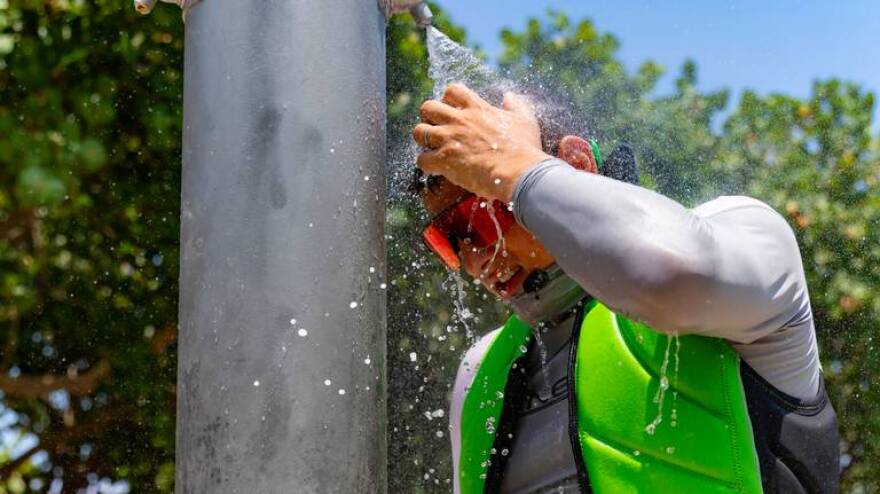After the hottest May on record, South Florida got a break from what is still expected to be a summer of scorching temperatures.
At least a little one.
A deluge of rain and consistently overcast skies earlier this month helped take the edge in June, with temperatures for the month staying pretty average, said Brian McNoldy, a senior research associate at the University of Miami’s Rosenstiel School of Marine, Atmospheric and Earth Science.
“June is behaving as it should,” McNoldy said. “But that’s no reason July and August might not end up the hottest on record.” The break from the extreme heat this month gave some much-needed reprieve the roofers, farmers and construction crews and also kept the ocean temperatures at bay. That last part was good for South Florida’s struggling reef tract.
READ MORE: Florida reefs are in trouble. Could the answer lie in coral from the Caribbean?
Coral entered the danger zone for heat-triggered bleaching in May, the earliest that has happened. On Monday, the National Oceanic and Atmospheric Administration reported that the moderating sea temperatures at least temporarily eased the threat of bleaching, which can weaken and even kill corals.
But that doesn’t mean the coral is out of the woods yet.
Allyson DeMerlis, a NOAA graduate student researcher, said scientists are continuing to monitor the reef and are staying on high alert. Florida’s coral reefs experienced the deadliest bleaching event in history last summer, and they want to be ready to take action this year if necessary.
And just because the heat isn’t record-shattering this month, that doesn’t mean it’s not often been dangerously hot. Between May 1 and June 24 is tied for the second-warmest it’s been in Miami.
“I don’t know if I’d call it a break from the heat, it’s still hot, but not record-breaking,” McNoldy said.
June was also a lot wetter than normal — between June 1 and June 24 the third wettest on record.
McNoldy said he doesn’t blame climate change on any single weather event but it has “its finger on everything.” Just because June temperatures won’t make it into the history books, he said, the average trend of temperatures is still moving upward.
The NOAA climate prediction center has an outlook of 60-70% chance above average temperatures for July.
“It’s a wild card on how hot it’ll get,” McNoldy said.
Ashley Miznazi is a climate change reporter for the Miami Herald funded by the Lynn and Louis Wolfson II Family Foundation in partnership with Journalism Funding Partners.
This story was produced in partnership with the Florida Climate Reporting Network, a multi-newsroom initiative founded by the Miami Herald, the South Florida Sun Sentinel, The Palm Beach Post, the Orlando Sentinel, WLRN Public Media and the Tampa Bay Times.
Copyright 2024 WLRN Public Media







